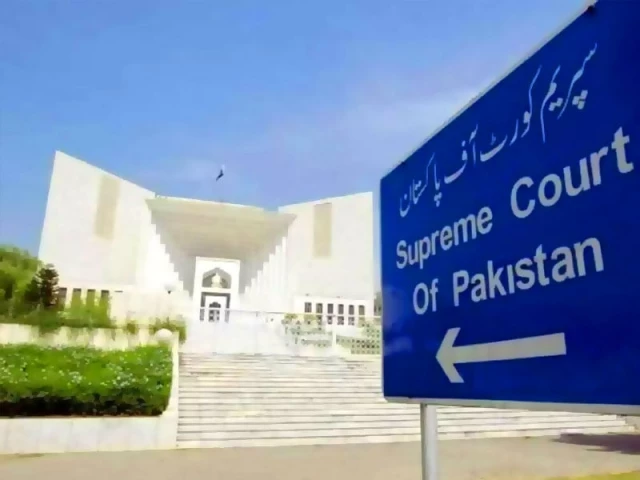The Supreme Court has canceled the preliminary order that excluded justice Tariq Mehmood Jahangiri from performing legal duties. A constitutional bench from the Supreme Court accepted Justice Jahangiri’s appeal and gave that “a judge cannot be detained from performing tasks based on a temporary order.”
A constitutional bench (cb) of Supreme Court (SC) Led by justice Aminuddin Khan and consisting of justice Jamal Khan Mandokhail, Justice Muhammad Ali Mazhar, Justice Hassan Azhar Rizvi and Justice Shahid Bilal Hassan monitored the case.
Attorney General Mansoor Usman Awan appeared in court and said, “A judge cannot be abolished from legal work through a temporary order.”
Senior Attorney Munir A. Malik questioned the order from Islamabad High Court (IHC) during the hearing today, where he said, “In my opinion, action can only be taken against a judge.
The written order from SC noted that the petition submitted in IHC brings to certain objections, and often Mian Dawood declared the Supreme Court. SC accepted Justice Tariq Jahangiri’s appeal against IHC. The Supreme Court must first decide the objections before continuing.
“IN Quo Warranto Petition filed for Islamabad High Court, High Court must first decide the objections before continuing. “
Justice Tariq Mehmood Jahangiri has resumed court assignments and reached his courtroom after being reinstated. He has begun to hear cases again after the Supreme Court’s decision to restore him to his attitude.
Justice Jahangiri now presides in a single bench, and together with Justice Saman Rafat Imtiaz, their division bench is also available today for hearings.
The Supreme Court on Monday suspended the IHC order that had excluded IHC judge Tariq Mehmood Jahangiri from performing legal work. IHC subsequently issued a new causal list that restored Jahangiri to single and division benches.
Read: Bumpy road in front of jahangiri
The case
A division bench led by IHC Chief Justice Sardar Muhammad Sarfraz Dogar on September 16 had stopped Justice Jahangiri in performing his duties as it began the procedure of a quo warranto -arriving that accused him of having a questionable LLB degree.
This was the first time in Pakistan’s history that a Supreme Court had prevented his own sitting judge from hearing cases – an order his lawyer called a battle against judicial independence.
On September 19, five IHC judges, including Justice Jahangiri, went to the Supreme Court personally to submit separate constitutional petitions, making eleven different prayers, including one seeking the cancellation of the IHC order that prevents Jahangiri from court work.
And then on September 25, the University of Karachi canceled the judge’s LLB degree in the light of a previous decision made by its syndicate, which further complicated the situation.
Outside of court, a journalist Jahangiri asked about Karachi University’s decision to cancel his legal degree. “I have already filed a petition in Sindh High Court,” he replied. “It is amazing that they cancel a degree after 34 years. This has never happened in world history.”
Read more: SC stops IHC order that prevents Justice Jahangiri from legal work
Justice Jahangiri has called the controversy “Political Sacrifice” that links it to his role in March 2024 IHC The judges’ letter on the surveillance of judges and to his work as a court judge whose decisions had disturbed the ruling party’s candidates.



